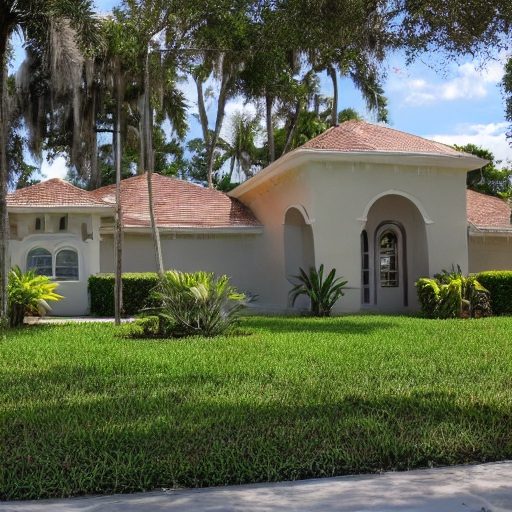
Get the Best Results with Richr: The Top Discount Real Estate Broker in Florida
Are you looking to buy or sell a property, but…
February 2, 2023
A Beginner’s Guide to Buying an Investment Property
The Risks and Rewards of Buying an Investment Property
Frequently Asked Questions (FAQ)
What to look for when buying an investment property?
How to start buying investment property?
How to get pre approved for investment property?
When identifying a possible investment, what factors matter most?
How investment property mortgages work?
When looking for a guide to investing in property, it can be hard to find a straight answer to a lot of your questions. There are many financial, structural, maintenance, and community-related questions to ask real estate agents when buying an investment property. Everything from the features of the property itself to the surrounding area and local taxes or expenses are important to consider to ensure you receive a return on your investment and that the time and effort are worth it to you. After all, you may see a monetary surplus, but is that worth it to you if you’ve spent every weekend focusing on maintenance issues? As a real estate investor, you must be focused on the overall value that the property presents now and in the future.
It’s time to buy smarter. Richr gives you cash back helping you buy the home of your dreams.
Buying real estate investment property is more attractive to some people than investing in stocks, bonds, cryptocurrency, and other financial investments due to the fact that most people have some sort of experience with the rental market as tenants or the real estate markets as homeowners.This experience makes investing in the real estate market seem less daunting and complicated than investing in the stock market. This is also due to the factors affecting property price shifts are easier to recognize and understand for most people than those that move share prices. This familiarity with the type of investment makes rental properties less intimidating than other investments.
Different types of real estate investing might interest you, depending on your background and understanding of the market. Some people may find they are best at residential real estate, while others may find their niche in commercial real estate. What matters the most is buying an investment property that will maintain its value and consistently provide a return on the money you spend and the effort you put in.
Many landlords will hire property managers in order to efficiently deal with the issues inherent with buying different types of investment property, such as plumbing, roofing, or foundation problems. This process often reduces the effort that landlords have to put into maintaining their real estate investment at the cost of their overall profit margins due to the fact that property managers have to be paid for their services, personally repairing problems or arranging for repairs to be done. This takes relief from the fear that all your time will be spent wrapped up in the property, even if the return on investment is positive appreciation and cash flow.
Purchasing investment property largely revolves around the current and future evaluation of its location, which can depend on several factors. Purchasing an investment property is no different than any other business model in the sense that you are looking to generate profit from the money that you spend and that you should be managing your expenses vs the income provided by the property. Real estate investing should always be grounded in the current or potential revenue the acquisition can lead to.
When buying real estate investment property, what to look for can become quite complicated. It’s not always as easy as choosing a lovely condo in a thriving downtown neighborhood. This is because many factors are involved in successful real estate investing, and buying a home as an investment can be both a big commitment and risk for most people thinking about investing in real estate. As a general guide to buying property for investment purposes, consider the following:
1. The Current Real Estate Market
The current estate market in a particular area is crucial to consider when purchasing an investment property. Before buying investment property, you should consider the overall supply and demand for property in the area. Analyzing the current number of listings, average rent price, and property taxes are just a few ways to examine the current state of a local real estate market and figure out what types of investment properties are the most in-demand from a renters perspective. Current interest rates compared to previous ones can also give you an idea of the general trend of the market and whether it will be worth it to purchase or hold on to a property or not.
2. Current Opportunities and Amenities
The area you are buying investment properties in, and the opportunities they provide to your potential renters is one of the most important factors to consider. The local job market, crime rate and quality of the school districts can all play a role in both the demand for your investment real estate and thus the possible rental price you can charge for the property. Access to and quality of local public transit, business, and entertainment also affect the value of different types of investment properties. If your investment property is too far away from schools, major metropolitan centres or entertainment venues, you may not experience a high demand for your property.
3. Future development
Another factor to consider when you buy investment property is the future potential of development in the area. Current conditions are always crucial for immediate returns on investment. Still, future developments in an area that may affect investment properties for sale are significant for long-term security and growth. Developments such as public transit routes, highways, and commercial districts can all increase the value of property within the area.
The steps to buying an investment property are no different than buying any other property. The important thing is what it takes to get approved for the mortgage and what you do with it after you take possession. The average person will use a purchased or rented property to live in or run a business. However, real estate investors purchase property to rent out at rates higher than the cost of their mortgage or to sell for a higher price than they originally paid eventually. However, depending on what route you would like to take, there are several regulations you will have to follow and ensure your investment property abides by before renting it out for specific uses. It’s crucial to continuously learn and live by your local bylaws as well as zoning restrictions before purchasing or starting renovations.
Applying for an investment property mortgage is one of the first steps to buying investment property and is essentially the same process as applying for a primary residence mortgage. But, there are a few significant differences. Rental properties generally have a higher rate of defaults by the mortgage bearer due to the tendency for investors to prioritize their own mortgage payments over that of their rental properties when they fall on hard times and need to make a choice. This could also happen due to a tenant that is also refusing to pay. This may lead to higher down payment requirements, stricter credit score requirements and debt-to-income ratios when applying for financial assistance, especially when investing in rental property for beginners with no history of being a landlord.
When buying an investment property, many factors are involved in your potential return on investment. Following a general investment property guide will help you understand the risks and rewards. Some things to consider are:
Buying a home as an investment should always be looked at as a risk vs reward scenario. The potential cash flow should always be more than your expected costs for mortgage, property taxes, maintenance, etc. You should be on the lookout for a property that will attract a tenant willing to pay more than your total expected expenses. One formula used by real estate investors called the 2% rule dictates that the total monthly rent should equal at least 2% of the total purchase price plus necessary renovations.
Before anything else, you must ensure your investment property is affordable, not only for you but also for your potential renters. Ideally, when buying a house for investment purposes, the goal is to make a profit. But, if you purchase a home that is too expensive for you to renovate or for potential renters to afford, your real estate investing dreams may not turn out the way you expected. If you are buying an investment home at too high of a price or if the maintenance costs are higher than the monthly rent you charge, you will either end up with an empty property that is not generating income, or you will be losing money maintaining the house that you thought would be producing either appreciation gains year over year or cash flow each month. The best approach is to ensure you have several months’ worth of backup funds ready for the mortgage fee in case you cannot find a suitable tenant to subsidize or completely negate your mortgage payments.
Investment property is all about turning a profit, not just immediately but also in the future. Contemporary real estate investing has heavily benefited from the appreciation of prices for both buying and renting real estate. Investing in real estate where prices are expected to rise due to new development, business, and market trends is a safer choice than investing in rural areas with no projected appreciation in value. Areas with recent growth in business, job opportunities, or substantial population growth are usually indications of promising areas for buying a home as an investment.
An income property mortgage is a specific type of mortgage given to a purchaser when buying an investment home or other types of investment property meant to produce income for the owner of the property. This income can come in the form of rent payments or profiting off of price appreciation. A mortgage for an investment property is usually harder to qualify for than mortgages for owner-occupied or single-family dwellings.
Property investment for beginners can be challenging as larger down payments are typically required for buying a home as an investment, especially without previous experience as a landlord. Most buyers will have to use private lenders to obtain financial assistance due to the lack of government programs available to assist real estate investors. Unsurprisingly, most people who default on their investment property mortgage choose to pay the mortgage on their family home as opposed to a property they purchased as an investment. This leads to an even stronger push toward making income property mortgages harder to obtain.
There is only so much any guide to buying rental properties can teach you, and the best way to buy investment property is not always a straightforward or easy process. Tips for buying investment property can be hard to come by. Thankfully, Richr.com provides online tools and financial services to both buyers and sellers to make the process easier. To make homeownership more attainable, they also offer 2% cashback on any home purchases making real estate investing less of a gamble for investors.
If you’re looking to buy or sell a house and would like to discuss your option, Richr can help you!
Our fully licensed Concierge Team is here to answer questions and provide free, objective advice on how to get the best outcome with your sale or purchase.

If you want the Richr team to help you save thousands on your home just book a call.
 Book a call
Book a call